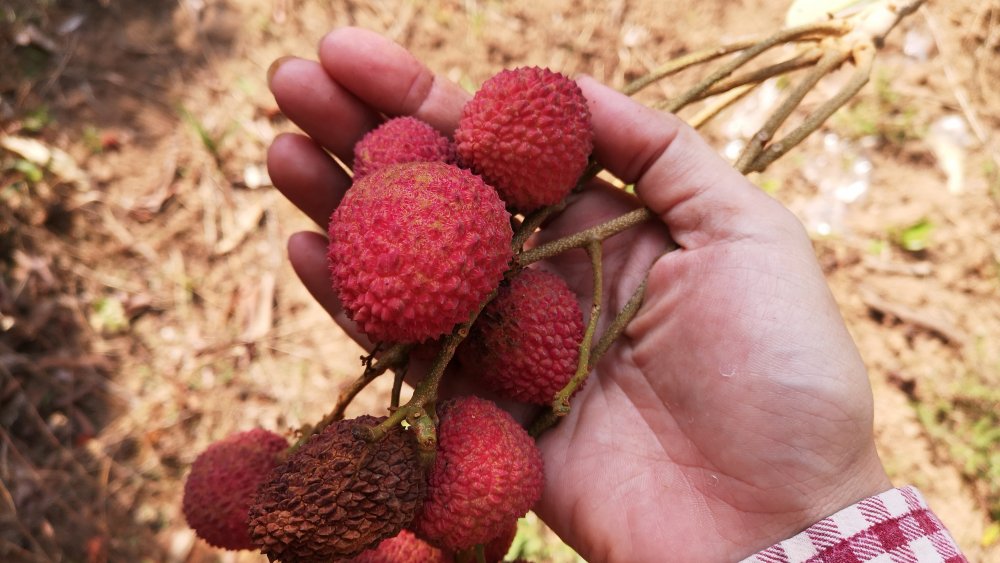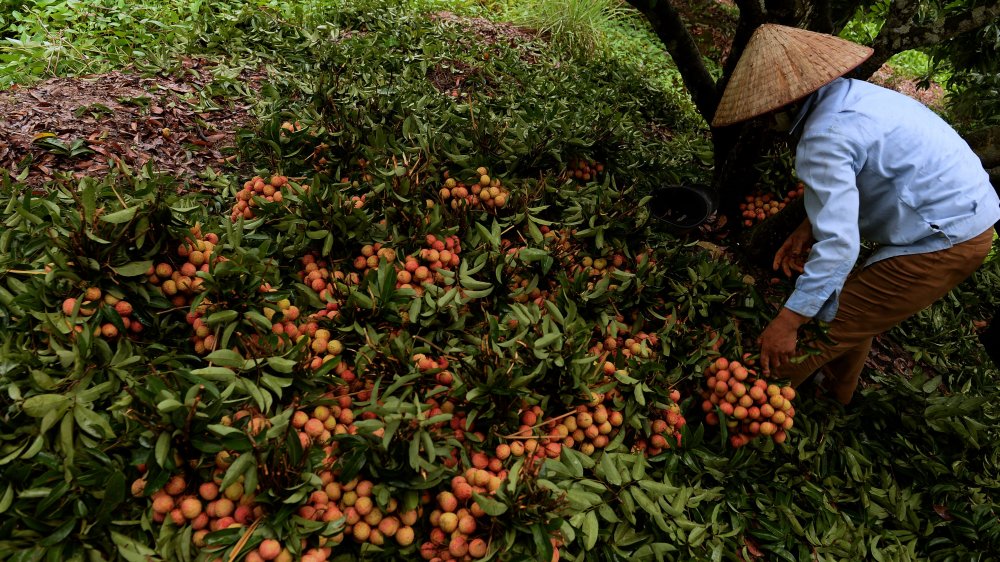Why Lychees Can Actually Be Dangerous To Eat
Along with mangoes, pineapple, coconuts, rambutans, and limes, lychees are the ultimate tropical fruit. Remove its rigid, scaly shell and you'll find creamy, sweet, white, juicy flesh that some fans say is a cross between a grape and a rose; while others swear it reminds them of pear or watermelon. Because lychees are mostly grown in Southern China and pockets of South and Southeast Asia, they are normally found in the U.S. in cans — and usually only in Asian markets. Lychee is irresistible when it is juiced; as the star flavor in a mojito, margarita, or martini; and in desserts like bubble tea and ice cream (via HuffPost).
But unlike many fruits, the lychee could have a dark side, whose existence scientists have yet to confirm. In the summer of 2019, several dozen children in India, Bangladesh, and Vietnam died of an unknown illness, who had hypoglycemia or low blood sugar, as well as symptoms of acute encephalopathy syndrome or AES, a disease which causes inflammation in the brain and triggers fever and disorientation. In more severe cases, children experienced seizures and fell into a coma (via The Scientist).
Lychees have been linked to the deaths of children in India, Vietnam, and Bangladesh
Because the illness occurred in a cluster within a lychee-producing area, scientists think the illness was caused by a toxin found in the fruit called methylene cylopropyl glycine, or MCPG, which can lead to AES — and the levels of that toxin are higher in unripe fruit, which the children could have consumed. But scientists have been unable to say why the disease has not manifested in other lychee-growing regions, and why AES also occurred in children who were too young to eat the fruit.
Other investigators think that the pesticides used to grow the lychees might also be to blame. "We investigated different things," says Emily Gurley, an epidemiologist at Johns Hopkins Bloomberg School of Public Health. "The signs and symptoms to us did suggest a type of poisoning. So we investigated this angle very directly [and] pesticides was the simplest explanation based on our investigation."

